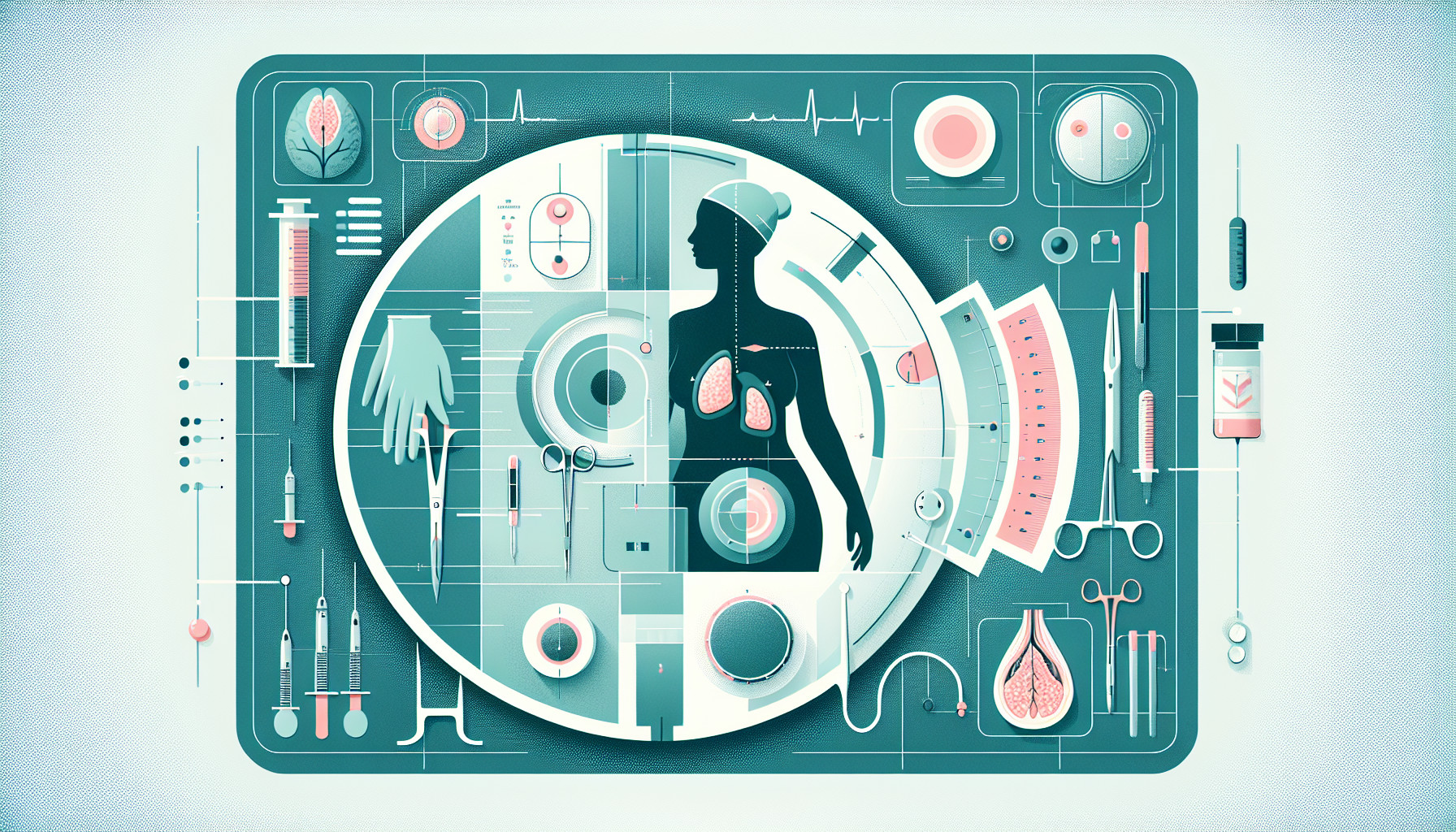Our Summary
This research paper looks at the different surgical options for breast cancer patients who undergo mastectomy (removal of the breast). The three options are: mastectomy only, immediate reconstruction at the time of mastectomy, or delayed reconstruction at a later date. The researchers wanted to see if there were any differences in cancer-related outcomes and complications between these three options.
They reviewed 51 studies, involving over 265,000 patients, and found that breast reconstruction, whether immediate or delayed, did not negatively impact cancer-related outcomes. In fact, patients who had reconstruction had a better overall survival rate compared to those who only had a mastectomy. Moreover, immediate reconstruction was linked to a lower rate of cancer spreading to other parts of the body.
However, immediate reconstruction was associated with a higher risk of complications and surgical site infections compared to the other two options. Despite this, the researchers note that surgical techniques for immediate reconstruction have improved over time, which could help reduce these risks.
FAQs
- What are the three surgical options for breast cancer patients undergoing mastectomy, as mentioned in the research paper?
- Does breast reconstruction impact cancer-related outcomes according to the research?
- Is there a difference in the risk of complications and infections between immediate reconstruction and the other two surgical options?
Doctor’s Tip
One helpful tip a doctor might tell a patient about mastectomy is to discuss the different options for breast reconstruction with their healthcare team. It is important for patients to understand the potential benefits and risks of immediate versus delayed reconstruction, as well as the impact on cancer-related outcomes. By having an open and honest conversation with their healthcare providers, patients can make an informed decision that is best for their individual situation. Additionally, patients should follow their doctor’s post-operative care instructions and attend regular follow-up appointments to monitor for any potential complications.
Suitable For
Patients who are typically recommended mastectomy are those with early-stage breast cancer, especially if the cancer is large in size or located in multiple areas of the breast. Additionally, patients with a genetic mutation that increases their risk of developing breast cancer, such as BRCA1 or BRCA2 mutation carriers, may also be recommended for mastectomy as a preventative measure.
Other factors that may influence the recommendation for mastectomy include the patient’s age, overall health, and personal preference. Some patients may opt for mastectomy as a way to reduce their risk of recurrence or to improve their cosmetic outcome, especially if they are concerned about the impact of radiation therapy on their breast appearance.
Overall, the decision to undergo mastectomy should be made in consultation with a multidisciplinary team of healthcare providers, including surgeons, oncologists, and plastic surgeons, who can discuss the risks and benefits of each surgical option based on the individual patient’s specific situation.
Timeline
Before mastectomy:
- Patient is diagnosed with breast cancer and discusses treatment options with their healthcare provider
- Patient makes the decision to undergo mastectomy
- Patient may undergo pre-operative tests and preparations for surgery
During mastectomy:
- Patient undergoes surgery to remove the breast tissue
- If immediate reconstruction is chosen, reconstruction is performed at the same time as the mastectomy
- Patient stays in the hospital for a few days post-surgery for recovery
After mastectomy:
- Patient experiences physical and emotional recovery from the surgery
- Patient may need to undergo additional treatments such as chemotherapy or radiation therapy
- If delayed reconstruction is chosen, patient may undergo reconstruction surgery at a later date
- Patient may need to follow up with their healthcare provider for regular check-ups and monitoring of cancer recurrence
Overall, the timeline before and after mastectomy involves a combination of medical decisions, treatments, and recovery processes, all aimed at improving the patient’s health and overall well-being.
What to Ask Your Doctor
- What are the different surgical options for mastectomy and which one is recommended for me?
- What are the potential risks and complications associated with each surgical option?
- How will mastectomy affect my cancer-related outcomes and overall survival?
- Is breast reconstruction recommended for me, and if so, should it be done immediately or at a later date?
- What are the potential benefits and drawbacks of immediate vs. delayed breast reconstruction?
- What can I expect in terms of recovery time and post-operative care after mastectomy and/or reconstruction?
- Are there any long-term effects or considerations I should be aware of after undergoing mastectomy and/or reconstruction?
- How will mastectomy and/or reconstruction impact my physical appearance and emotional well-being?
- Are there any alternative or complementary treatments or therapies that may be beneficial for me before or after surgery?
- What support resources are available for me as I navigate through the decision-making process and recovery journey post-mastectomy?
Reference
Authors: Shen Z, Sun J, Yu Y, Chiu C, Zhang Z, Zhang Y, Xu J. Journal: J Plast Reconstr Aesthet Surg. 2021 Feb;74(2):290-299. doi: 10.1016/j.bjps.2020.08.121. Epub 2020 Sep 20. PMID: 33093010
